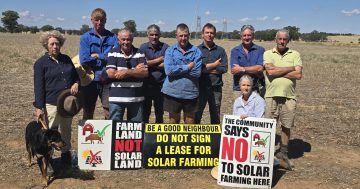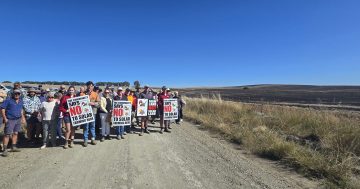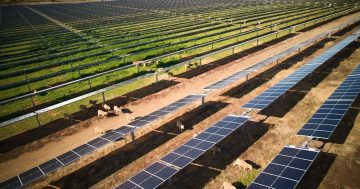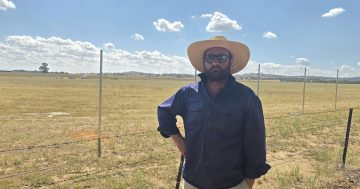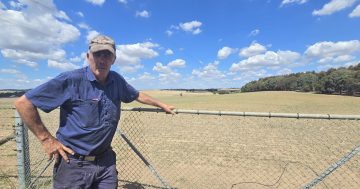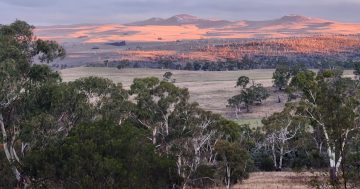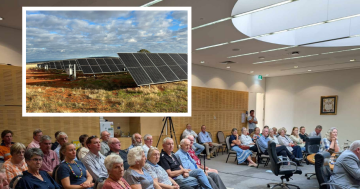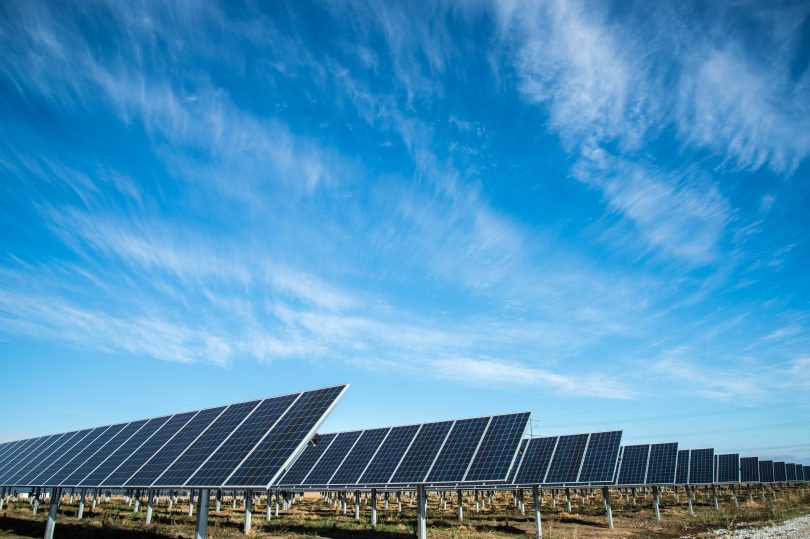
There are currently a number of solar factories proposed for the Wagga Wagga electorate, including those at Mates Gully, Maxwell, North Wagga and Uranquinty. Photo: File.
Landowners east of Wagga Wagga are joining forces to safeguard valuable farmland and food security against the expansion of solar factories in the region.
The Riverina Sustainable Food Alliance (RSFA) has been formed in response to the growing number of solar factories or “farms” being proposed for prime agricultural properties across the Wagga Wagga electorate.
While alliance members acknowledge solar energy is a vital component of the state’s transition to renewables, they argue that it can’t come at the cost of food security or the environment.
Productive farmland in Australia is finite and other parts of NSW are more suited to large-scale solar factory developments, according to the alliance.
Borambola landowners and alliance members Rick and Pam Martin have spent 35 years improving their property to overcome substantial problems with erosion, soil acidity, dryland salinity, waterlogging and a high water table.
They estimate they have planted more than 60,000 trees, which now cover 14 per cent of their property; efforts that have won them national Landcare plaudits and inspired many of their neighbours to adopt similar practices.
The Martins’ fine wool and cropping property Burnbank Farm sits adjacent to land on which a 307-hectare solar farm is being proposed by renewable energy developer Sparks Renewables, who own the nearby 250-ha Bomen Solar Farm.
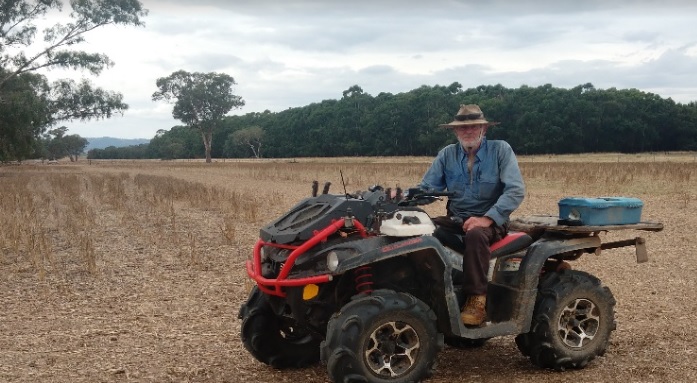
Borambola landowner Rick Martin and his wife Pam have, alongside neighbours, formed the Riverina Sustainable Food Alliance (RSFA) to oppose a proposed new solar farm development. Photo: Rick Martin.
“When the land next door sold, there were rumours for about 12 months but nothing concrete,” Rick said, “and by the time you hear about it, it’s almost too late – someone’s knocking on your door wanting to look at how the solar farm will impact your property,” he said.
Mr and Mrs Martin are concerned not only about the loss of productive farmland, but the impact the installation of thousands of solar panels will have on that and neighbouring land.
“With nearly 4 km of our property’s eastern boundary adjoining hundreds of acres of gleaming glass surfaces we are really concerned with the run-off from the panels onto our property, and also the impact on the thousands of trees we have planted adjoining the proposed solar factory,” Mr Martin said.
“It is also possible there will need to be substantial earthworks to flatten parts of the undulating land,” he said, “this will have a detrimental impact on the water table and likely increase the threat of dryland salinity; an issue we have worked so hard to address”.
Mrs Martin also flagged concerns about bushfires.
“With the memory of being totally burnt out at the end of 1984 we know the heartache that bushfires cause,” she said.
“Firefighters will not be able to enter the solar factory site to control a fire and would be forced to wait on the boundary fence while it burns out of control,” she said.
Mrs Martin said they supported the expansion of renewables, where appropriate, “but solar factory developments do not belong on prime agricultural land”.
There’s also the overarching issue of decreasing land values if the proposal goes ahead, Mr Martin added.
The Martins have the support of NSW Member for Wagga Wagga, Dr Joe McGirr, who supports the push to keep solar factories off productive farmland.
“It makes no sense to put these solar factories on some of Australia’s best agricultural land,” Dr McGirr said, “we know we need renewable energy, but we also need to eat.”
He said there were plenty of places – such as the state’s renewable energy zones – where these solar factories could be developed.
“The United Nations Food and Agriculture Organisation has rightly pointed out that with the global population continuing to climb, we are also going to need a substantial increase in food production,” he added.
“Covering prime agricultural land with solar panels is not going to improve food security.”
There are currently a number of solar factories proposed for the Wagga Wagga electorate, including those at Maxwell, North Wagga, Uranquinty and Mates Gully, which would be considered a State Significant Development (SSD) under NSW planning policy. Community consultations for the Mates Gully proposal kicked off on February 22 and concerned parties can take the company survey here.
Affected landowners who’d like to know more about the Riverina Sustainable Food Alliance can join their Facebook group.
Original Article published by Edwina Mason on About Regional.








